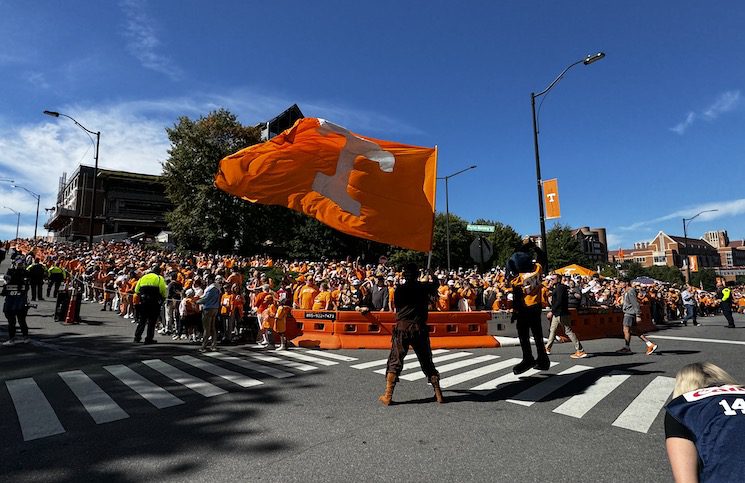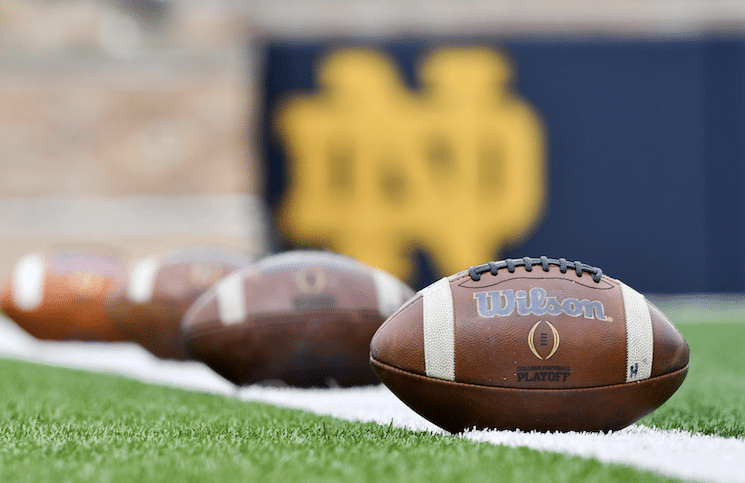
When it was announced that every remaining sporting event in the regular season or postseason would be canceled across collegiate athletics due to the concerns amidst the outbreak of the coronavirus, one of the biggest questions was whether or not the athletes in spring sports would receive recompense for losing a year of eligibility.
As of Monday evening, it looks like the NCAA will be ruling in favor of the student-athlete this time around. At least, the spring sport athletes, that is.
The NCAA Division I Council announced on Monday that all spring sport athletes will receive a waiver for an extra year of eligibility. It will be up to each individual school on how much they will provide in scholarships to those athletes, if any at all. The NCAA says teams will be able to carry more members on scholarship to account for incoming recruits and student-athletes who were in their last year of eligibility who elect to return for another season. Schools also will have the ability to use the NCAA’s Student Assistance Fund to pay for scholarships for students who take advantage of the additional eligibility flexibility in 2020-21.
The decision is for all spring sport athletes, not just seniors. That means any athlete in a spring sport could quality for an extra year of eligibility and would be able to use this past season basically as a redshirt.
“The Council’s decision gives individual schools the flexibility to make decisions at a campus level,” said M. Grace Calhoun, the Chair of the NCAA D1 Council and the Athletics Director at Penn via a release. “The Board of Governors encouraged conferences and schools to take action in the best interest of student-athletes and their communities, and now schools have the opportunity to do that.”
As for winter athletes, they weren’t as lucky.
Student-athletes who played in winter sports — such as men’s and women’s basketball — were not granted an extra year of eligibility. The NCAA declined to extend an extra year to winter sport athletes because either all or much of their regular seasons had been completed.
Spring sports across Division I in the NCAA include baseball, softball, men’s and women’s golf, men’s and women’s lacrosse, women’s rowing, men’s and women’s tennis, men’s and women’s outdoor track and field, men’s volleyball and women’s beach volleyball, and women’s water polo.
Many spring sport athletes only receive partial scholarships and would have to weigh paying to play another year with the decision to continue on as if their year finished up. Not only would those athletes have to decide if they want to pay their own way to play, but they potentially could be paying more than they have been if the school elects to provide them with less scholarship money or none at all.
By leaving it up to individual schools, the NCAA is giving universities more autonomy to decide what makes more sense financially for each individual school rather than dictate what makes sense for every school across the country.
For Tennessee, handling baseball, softball, track, etc. scholarships will be an interesting problem to figure out.
All of that doesn’t even take into account the incoming prospects in each sport, either.
Even with the NCAA allowing teams to have more players on scholarship, it creates a numbers problem for each team across the country. In baseball alone, Tennessee has 18 prospects committed to them in the 2020 recruiting class. On this year’s team, the Vols had three seniors who could all elect to return for another year should they choose to do so, and 12 players on UT’s roster were juniors in the 2020 season. A handful of those upperclassmen — such as Alerick Soularie and Garrett Crochet — will likely forgo another season to enter the MLB Draft, however.
Of course, this year’s MLB Draft is also an interesting topic to discuss. Right now, the MLB is trying to decide if they want to abbreviate this year’s draft significantly or delay it entirely. The 2020 draft could have as few as five rounds or could be up to just 10 rounds. A typical MLB Draft is 40 rounds.
Luckily for UT’s baseball team, the NCAA has increased the roster limit in baseball for student-athletes impacted by the COVID-19 pandemic. Baseball is the only spring sport with such a limit, so the NCAA decided to be more lenient on that sport.
For the winter sports, their seasons are officially over. That means seniors Jordan Bowden, Lamonte Turner, Lou Brown, and Kamera Harris will not be able to suit up for the Vols and Lady Vols again, respectively.




